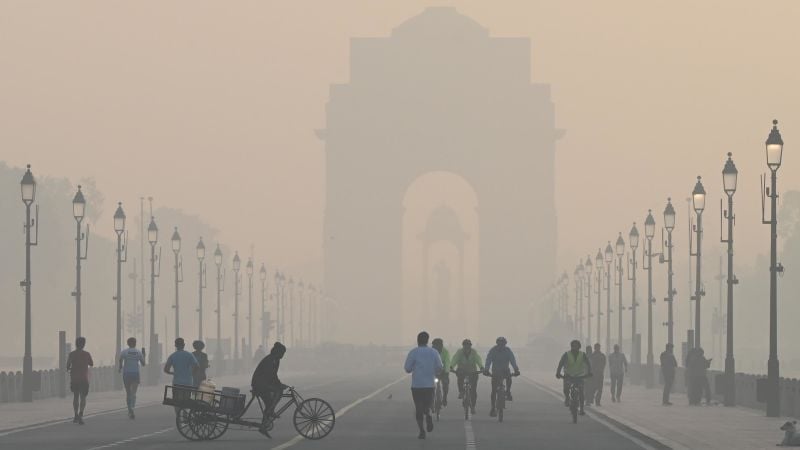All but one of the 100 cities with the world’s worst air pollution last year were in Asia, according to a new report, with the climate crisis playing a pivotal role in bad air quality that is risking the health of billions of people worldwide.
The vast majority of these cities — 83 — were in India and all exceeded the World Health Organization’s air quality guidelines by more than 10 times, according to the report by IQAir, which tracks air quality worldwide.
The study looked specifically at fine particulate matter, or PM2.5, which is the tiniest pollutant but also the most dangerous. Only 9% of more than 7,800 cities analyzed globally recorded air quality that met WHO’s standard, which says average annual levels of PM2.5 should not exceed 5 micrograms per cubic meter.
“We see that in every part of our lives that air pollution has an impact,” said IQAir Global CEO Frank Hammes. “And it typically, in some of the most polluted countries, is likely shaving off anywhere between three to six years of people’s lives. And then before that will lead to many years of suffering that are entirely preventable if there’s better air quality.”



China has been investing so much in nuclear, EVs, geothermal, there’s no way it’s them.
Ten years ago? Sure.
Now? No way. Their green energy revolution and energy independence aims are already startlingly effective
They invest more in new coal than anywhere else.
They may be adding a lot of green energy, but that’s only a lot in comparison to smaller countries not a lot overall.
Australia for example generates more power in percentage from green energy than China, and we’re doing shit all here.
The Chinese renewable infrastructure installed and currently being installed is inarguably massive compared to all other countries, of any size, combined:
China’s solar energy capacity by early 2023, 250GW, was more than the rest of the world combined.
That 250GW capacity is double what it was in 2017
It’s over 300 GW of solar power as of 2024, and on track to install another 1000GW before 2030, quadrupling their solar capacity alone and massive lead over the rest of the world in solar power and renewable energy.
Wind energy in China has a higher capacity than all of Europe combined.
Australia has 26 million people, China has 1.4 billion, 50 times the personal modern energy needs of Australia in a country that gets much colder for longer parts of the year.
yes but see china bad
Oh, of course.
and yet coal power plant utilization is dropping like a rock
turns out that when profit isn’t the only driving factor behind infrastructure, you can afford to do what’s best for the people (stable power supply by ramping coal production up/down to smooth supply from renewables) rather than what’s best for profits (running new coal plants at full bore)
IDK, given the sheer volume of people it still seemed within the realm of possibility, but on the other hand, yeah, India.
That said, (I don’t say this very often) good job China.
Can’t give them credit for a lot of things, but nobody can fault them on sustainable energy investment